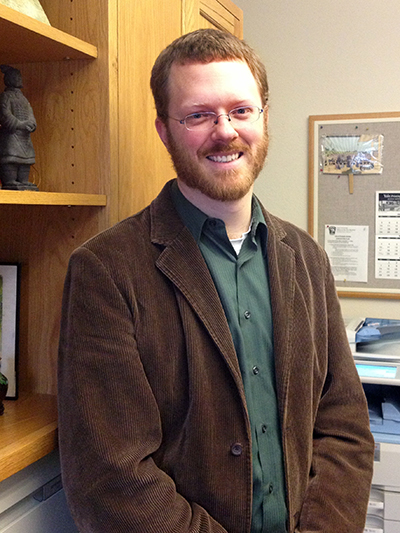Lunch will be provided.
Pre-regstration required. Please email us with your name and academic affiliation.
Mick Hunter will discuss his experience as co-PI of the Ten Thousand Rooms Project, a Mellon-funded initiative to create an online workspace for the collaborative transcription, translation, and annotation of pre-modern Chinese sources. In addition to discussing that project's genesis, successes, and challenges, Mick will also discuss the importance of digital texts and database tools for his own research on ancient Chinese texts
Michael Hunter is an assistant professor in East Asian Languages and Literatures at Yale University. Mick received his Ph.D. in 2012 from the East Asian Studies department at Princeton University, where he studied under Willard Peterson and Martin Kern. His dissertation project, “Sayings of Confucius, Deselected,” examines the history of Confucius sayings in the early period and argues that the Confucian Analects, traditionally the most authoritative source of Confucius’s teachings, was first compiled during the early part of the Han empire, roughly three centuries later than is usually supposed. His teaching and research interests cover all aspects of early Chinese culture but with a heavy emphasis on early thought and literature. Having earned his B.A. in Western classics and philosophy from Swarthmore College, Mick is keenly interested in comparing early Chinese intellectuals with their counterparts across the ancient world. He is also an enthusiastic proponent of the use of digital research tools for the study of early Chinese texts. In addition to a number of articles, Mick is currently revising his dissertation for publication and also planning two long-term projects: one on the Shangshu 尚書 (Exalted Documents), and the other on the history of pre-Han thought in light of Han scholars’ role in shaping and even recreating pre-Han textual traditions.



